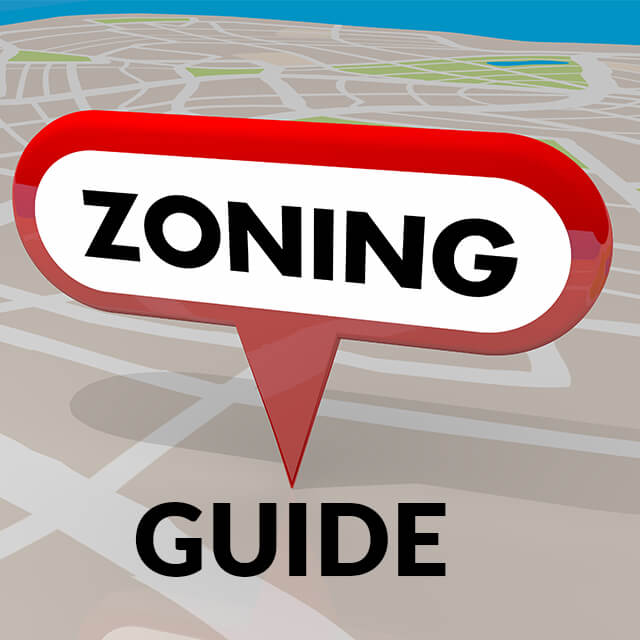Data shows zoning drives house prices higher
Many factors influence property values – some are more obvious than others. There’s location, like a beachfront property or proximity to certain amenities, or the overall size of the land and house. In Auckland, generally, the closer you are to the city centre the more valuable your property, although these days it’s not quite as clear-cut as that.
Then there are less obvious factors that are hard to distinguish just by looking at the property. The effect of zoning on property values has been studied in detail, and while experts still can’t say for sure whether there is a precise combination of variables that causes a property’s value to sky-rocket, zoning certainly plays a key role in rising house prices.
What is zoning?
Zoning refers to the laws or regulations that dictate by area how property can be developed. It can limit commercial and industrial use of land to stop these types of businesses building in residential neighbourhoods. It can be used to control the flow of traffic, protect sites of historical significance or manage noise levels.
Zoning laws also regulate the details of construction in certain areas – for example, limiting the maximum height of buildings in particular residential neighbourhoods, regardless of whether the building otherwise complies with the laws. These laws keep high-rise buildings from being erected in an area dominated by one or two-storey residential properties.
Zoning law changes
Local governments can make changes to zoning laws if development or construction of property will help advance the community economically.
The most recent change to Auckland’s zoning laws came in 2016 when the Auckland Unitary Plan became operative. It allows thousands of property owners across the city to develop their land more densely (called up-zoning), increasing the potential number of dwellings permitted on a section of land.
Ever since the Unitary Plan came into action, clear patterns are beginning to emerge showing the effect of different types of zoning on the value of properties. The presence – or lack of – zoning restrictions can influence the sale price of a property, with real estate in certain areas selling for a premium based on the development opportunities.
Here we take a closer look at two examples of zoning, and how they can drive the value of property up or down:
Up-zoning allows more development
One of the most significant changes in the Auckland Unitary Plan is the rezoning of many less densely zoned areas. In line with a growing population, lack of housing and an increase in employment, the up-zoning of these areas expands opportunities for development, increasing the potential number of dwellings on the land. This means that in neighbourhoods where previously only single-storey homes were permitted, a townhouse complex or multi-storey apartment block can now be constructed.
But does up-zoning – or more development – drive the value of properties higher? Based on research, the short answer is yes.
More value added closer to the city
Housing data shows that on average, up-zoning adds just under $35,000 to the value of a property, especially for those properties closer to the city centre (and therefore more work opportunities).
How much value is added varies by suburb and the density of development allowed, but generally, those properties that have been up-zoned in more densely zoned areas will sell for a much higher premium.
Getting in the school zone
For homeowners with children, it may not be surprising that properties located in ‘good’ school zones are worth more. There’s no perfect measure for determining what a good school zone is, but often income, achievement and school deciles are correlated.
A study published in 2017 by the Chief Economist Unit showed that across the entire Auckland region, a house in a decile 10 zone would sell for approximately $225,000 more than an identical house in a decile 1 zone. It also found that on average, as the decile of a zone increased so did the price of houses by $22,500.
However, there’s no guarantee popular school zones won’t shift, meaning your home – and your children – will no longer be in the zone for a particular school.
Double-grammar zone
Then there’s Auckland’s ‘double-grammar zone’ – three words that significantly increase the value of residences zoned for both Auckland Grammar and Epsom Girls Grammar, two of Auckland’s most prestigious and successful schools.
The same study found that in addition to the decile value, houses in this zone were worth an extra $130,000. With both schools sitting at decile 9, this means a double-grammar zone property could essentially be valued a whopping $332,500 more than an identical property in a decile 1 zone.
Added value varies by suburb
The effect of zoning has increased significantly over time, especially in the Auckland region. The demand for greater development of the city due to a growing population, an increase in employment and higher incomes has driven a change in zoning laws and regulations – and the effect on property values is substantial. Whether you’re looking to purchase your first home or sell an investment property, it’s good to understand how much zoning could add to the value of a property.
Global Finance is New Zealand’s most awarded mortgage and insurance adviser. Book a consultation with the team at Global Finance today.
**These are general guidelines and are by no means a reflection of bank or lending policies

